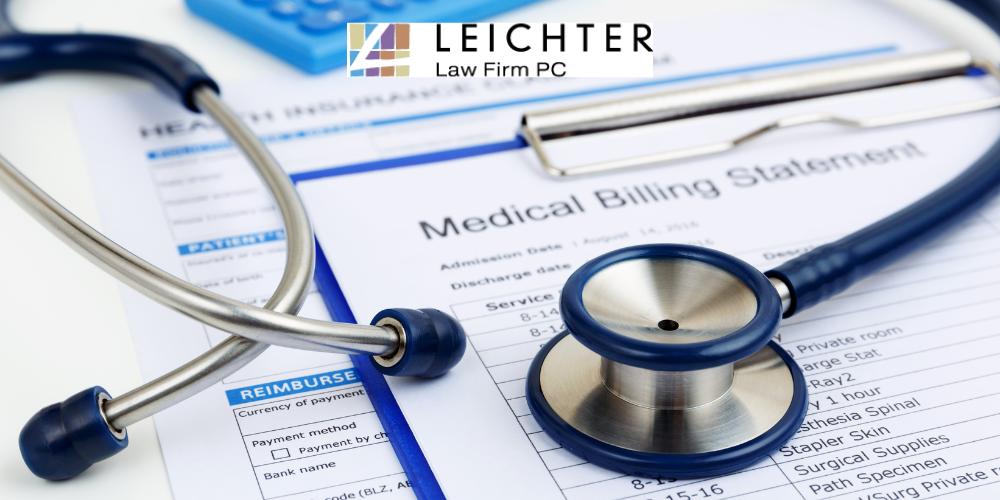Illegal Billing Practices Lawyer in Texas

According to the U.S. Government Accountability Office, over $1 out of every $7 spent on Medicare is used fraudulently. Recently, more than 100 medical workers were charged with billing more than $225 million in false Medicare charges. Illegal billing practices in the healthcare industry are a serious problem, burdening taxpayers, insurance companies, and patients.
Unfortunately, this widespread billing fraud has led to a dramatic increase in investigations into medical providers after simple mistakes or errors. Any healthcare provider being investigated for medical billing fraud should take the situation very seriously. Their best bet is to speak with a qualified health care fraud lawyer to defend themselves and their practice.
Being charged with fraudulent billing practices is no simple affair, and the Leichter Law Firm has the experience and knowledge you need to help you build a strong defense against fraudulent billing charges. To speak with a Texas professional license defense lawyer about your situation and legal options that are available to you, contact our office at 512-495-9995.
What Are the Most Common Unethical Billing Practices?
When medical billing fraud occurs, it not only costs healthcare providers time and money, but also patients and taxpayers. For this reason, accurate billing and airtight compliance plans are essential in any doctor’s office. Even if a simple medical bill error occurs, this could trigger an audit or investigation into one’s medical practice.
Some of the most common unethical medical billing practices that result in legal consequences for health care providers include the following.
Upcoding
This is one of the most common forms of overbilling or upcharging patients. Healthcare provider offices use Current Procedural Terminology (CPT) codes to track and bill medical procedures, surgeries, and diagnostics. Each task or service that a medical provider can perform for a patient has a specific assigned CPT code that insurance companies use to determine how much to pay those providers.
Upcoding involves billing a patient for a higher amount than what was necessary for the service rendered. For example, let’s say that a patient underwent a minor medical procedure. If they are billing for a more complicated, extensive procedure that is closely related to the actual procedure, this would result in a higher medical bill. This practice is known as upcoding and is a form of fraudulent medical billing.
Unbundling
In some cases, billers will separate a service with one unique code into two separate codes and therefore two separate charges. If the services provided should have been billed under the same procedure code, this is known as unbundling. It could result in higher patient charges and can be difficult to identify unless you know what you’re looking for.
Undercoding
Similarly to upcoding, undercoding involves using CPT codes that don’t fully capture the extent of the services provided. Some medical billers do this in an attempt to avoid an audit, but this is still a form of illegal billing that could backfire in the end. Even if no other fraud has occurred, undercoding still arouses suspicion and could result in fraud charges. What’s more, is that undercoding also leads to losses in revenue and lower reimbursement rates for healthcare providers.
Misrepresentation
Misrepresentation can occur in a number of ways, including in location of services, providers of services, and dates of service. For example, imagine that a health care professional prescribes an injection for a patient’s condition. The provider tells the patient to self-administer the injection at home, but the medical billing statement claims it was administered in the clinic by the provider. This is a form of illegal medical billing.
Another example of misrepresentation is in the form of the dates of services rendered. If a provider treats a patient for two days, but the bill records treatment for three days, this is illegal misrepresentation of dates. It results in unnecessarily higher charges for the patient and higher reimbursement for the provider.
Double Billing
As the name suggests, this involves billing a patient twice for the same service. In many cases of double billing, patients will overlook the duplicate charge. Billing more than once for medical treatment is a fraudulent, illegal practice and could severely impact one’s professional reputation.
Corruption
In general, kickbacks and referrals are unethical and illegal in healthcare settings. The opportunity for abuse arises if a provider recommends unnecessary services to patients. After these unnecessary services are rendered, the provider submits a claim and receives greater reimbursement than they should have. Being accused of this kind of corruption as a health care provider is not something to take lightly. We strongly recommend contacting a healthcare fraud lawyer if you face accusations of corruption.
Phantom Charges
If a patient is billed for services that were never actually provided, these are known as phantom charges. It is easy to see why this is an illegal billing practice that could bring serious criminal or civil penalties to those responsible.
Types of Illegal Billing Practices
Physicians aren’t the only healthcare professionals who are frequently accused of unethical medical billing practices. Other providers, such as dentists, pharmacists, and even veterinarians can be accused of or charged with billing fraud. Regardless of what kind of provider is accused of fraudulent medical billing, charges of this nature could threaten their livelihood.
Although any provider could face charges for unbundling fraud, upcoding fraud, duplicate charges, or other forms of fraud, doctors and dentists tend to face it more often.
Illegal Dental Billing Practices
Much like a physician, a dentist could face accusations of medical billing fraud. Any of the following common billing mistakes could prompt an investigation or audit into one’s practice.
- Phantom charges
- Double billing
- Upcoding or downcoding
- Unbundling
- Waiving deductibles or copayments
- Changing or altering claim forms
Unethical Medical Billing Practices
A doctor or hospital that submits false or inaccurate claims to a health insurance company could face serious penalties and fines for doing so. However, not every instance of unethical medical billing practices is done with the intent to defraud a health insurance provider or government entity. Simple mistakes happen, but even a small error could result in a full-scale investigation.
If you face accusations or charges for fraudulent billing, the best next step to take is calling an experienced attorney. These cases are often very complicated and intimidating, but qualified legal counsel can give you the support and the peace of mind you need to get through this.
How Are Medical Billing Fraud Investigations Conducted?
Generally, medical billing fraud investigations begin when one of the following occurs.
- A billing analyst discovers a suspicious pattern of claims.
- A whistleblower or insider files a report about a fraudulent claim to the proper authorities.
- Or, a patient files a complaint about their bill when they discover inconsistencies or incorrect information.
Remember that, as soon as you realize you are under investigation, you should protect yourself by securing legal representation. You may receive a request from a fraud investigator for documentation or for interviews of you and your employees. You may also receive a visit from an investigator.
If an investigator goes directly to your place of business for an interview, they may have already gathered evidence against you or your practice. We strongly suggest having an attorney present for the interview, as this can protect you from self-incrimination.
Remember that you have the right to an attorney before, during, and after the interview. Taking a lawyer to the fraud interview is in your best interest, as they will ensure you don’t say anything that could put your practice in danger. You also have the right to remain silent, which you should exercise until you have an attorney present.
Our attorneys fully understand what actions are involved in fraud investigations, so we have the experience you need to defend your practice.
What Are the Penalties for Fraudulent Medical Billing?
Convictions of fraudulent billing have very serious potential penalties for healthcare providers and their professional practices. Individuals could face both criminal and civil penalties, as well as exclusions from certain government programs. The following penalties are a possibility for individuals convicted of illegal billing practices.
- Under the False Claims Act, convictions could result in up to five years in prison and fines of up to $250,000.
- Under the Anti-Kickback Statute, convictions could result in up to five years of incarceration and up to $25,000 in fines.
- The Department of Health and Human Services may also levy fines of $50,000 for each Anti-Kickback Statute violation and $11,000 per false claim filed. The Office of the Inspector General may also impose fines of triple the damages that the government suffered from the fraudulent acts.
- Convicted providers may also be excluded from federal health care programs.
How to Avoid Medical Billing Fraud Charges
There are several steps providers can take to avoid, prevent, or lessen the likelihood of billing fraud in their practice. If you want to protect yourself and your professional practice against billing and coding fraud, consider the following.
- Learn more about the False Claims Act, as well as other related healthcare laws and regulations. This could reduce the likelihood of mistakes, errors, and false claims.
- Ensure that your medical coding staff is properly trained. Having a good team and a solid compliance plan in place is essential for avoiding fraud investigations.
- Keep accurate medical records. This will help improve the efficiency of patient records and defend medical professionals against accusations of fraud.
What Are the Defenses to Billing Fraud?
If you have been accused of or charged with billing fraud, there are a number of possible defenses your attorney can use in your defense.
- Simple mistakes or lack of intent
- Existing compliance programs
- Insufficient government evidence
Other defenses to these charges exist, but the above defenses are among the most common and effective. Depending on the circumstances of your case, our team will gather as much evidence as possible to show that you did not willfully or intentionally engage in healthcare fraud.
Contact an Attorney for Illegal Billing Practices Defense with Leichter Law
If you have been charged with or accused of fraudulent billing, you risk losing your professional license and facing other serious consequences. With the help of the qualified Texas medical license defense attorneys at the Leichter Law Firm, you can build a strong defense and fight against those charges.
Both your professional and personal lives may be at risk, so don’t hesitate to reach out. Contact us today at 512-495-9995 for more information on how to protect yourself and your professional license.
Get in Touch
Office Locations
1602 E 7th St
Austin, TX 78702
Phone: (512) 495-9995
Get Directions
3700 N Main St
Houston, TX 77009
Phone: (713) 714-2446
Get Directions
214 N 16th St #128
McAllen, TX 78501
Phone: (956) 205-0884
Get Directions



